By Treatment
- Liposuction Surgery
- Hepatitis Treatment
- Ayurvedic Treatment in India
- Naturopathy Treatment in India
- Spa Therapy Treatment in India
- Aromatherapy in India
- Liver Transplant
- Liver Fibrosis
- Liver Tumor
- Liver Cancer
- Liver Cirrhosis Treatment
- Coronary Artery Bypass Grafting Surgery
- Heart Valve Replacement
- Angioplasty
- Aortic Valve Replacement
- ASD/VSD closure surgery in India
- Cardiac Tumours in Children
- Cardiac Ablation Surgery
- Renal Angiogram
- Cardiac Tumour Treatment
- Pacemaker Implant
- CRT-D Implant
- CRT-P Implant
- Hernia Surgery
- Spine Surgery
- Spine Tumor Surgery
- Spinal Cord Cancer
- Cervical Spine Surgery
- Spinal Fusion Surgery
- Facet Joint Spine Surgery
- Knee Replacement Surgery
- Rhytidoplasty Surgery in India
- Hip Replacement Surgery
- Shoulder Replacement Surgery
- Cataract Surgery
- TAVR (Transcatheter Aortic Valve Replacement) Treatment in India
- Breast lift surgery in India
- Face Lift Surgery
- Rhinoplasty surgery in India
- Yoga and Meditation in India
- Thigh Lift surgery in India
- Breast augmentation
- Robotic Knee Replacement Surgery
- Mentoplasty Treatment in India
- Arthroplasty surgery in India
- Cordotomy Surgery
- Arthroscopy Surgery in India
- Macular Degeneration
- Spinal Decompression Surgery
- Penile Implant Surgery in India
- Erectile Dysfunction Treatment in India
- Diabetes cause Impotence Treatment India
- Peyronie's treatment in India
- Urethroplasty Surgery in India
- Artificial Urinary Sphincter Surgery in India
- Phalloplasty Surgery in India
- Penectomy Surgery India
- Priapism Treatment in India
- Multiple Sclerosis
- Hysteroscopic Surgery
- LEEP (Loop Electrosurgical Excision Procedure) Treatment
- Vaginal Hysterectomy Surgery
- Lasik Eye Surgery
- Laparoscopic Myomectomy
- Glaucoma Treatment in India
- Hysteroscopy Treatment
- Astigmatism Treatment in India
- Corneal Transplant
- Cochlear Transplant
- Dialysis & Kidney Transplant
- Hysteroscopic Myomectomy
- Tympanoplasty Surgery
- Block Dissections of Neck, Endolymphatic Sac in India
- Interstitial Cystitis Treatment
- Total Laparoscopic Hysterectomy (TLH)
- Multiple Scoliosis Surgery
- Myomectomy Treatment
- Stapedectomy Surgery
- Thyroid Cancer Treatment
- Dilation and Curettage
- Trigger Point Injection (TPI)
- Deep Brain Stimulation (DBS)
- Bone Marrow Transplant
- Scoliosis Surgery in India
- Spondylolisthesis Spine Treatment
- Colposcopy
- Ossiculoplasty surgery in India
- Laparoscopic Uterine Suspension Surgery
- Rotator Cuff Tear Surgery
- Laryngectomy Surgery in India
- Micro Laryngeal surgery in India
- Laparoscopic Supracervical Hysterectomy
- Pelvic Laparoscopy Surgery
- Functional Endoscopic Sinus Surgery in India
- Cardiology
- Liver Disease Treatment
- Osteoarthritis Spine Treatment
- Arthrodesis Surgery
- Gallbladder Cancer Treatment
- Pancreatic Cancer Treatment
- Meningiomas Treatment
- Ovarian Cancer Treatment
- Testicular Cancer Treatment
- Anterior Cruciate Ligament (ACL) Surgery
- Bone Marrow Cancer
- Orthopaedics & Joint Replacement
- Degenerative Disk Spine Treatment
- Herniated Disc Spine Treatment
- Neurology and Neurosurgery
- Anal Cancer Treatment
- Kidney Cancer
- Minimally Invasive Spine Surgery
- Bladder Cancer Treatment
- Stomach Cancer Treatment
- Mouth Cancer Treatment
- Bone Cancer Treatment
- Throat Cancer Treatment
- Breast Cancer Treatment
- Chemo Treatment
- Colon Cancer Treatment
- Esophageal Cancer Treatment
- Obstetrics & Gynaecology
- Herniated Disc Surgery
- Aortic Stent Grafting
- Head and Neck Cancer Treatment
- Artificial Spine Lumbar Disc Replacement
- Spine Osteotomy
- Lumbar Laminectomy for Spine or Spinal Decompression
- Lungs Cancer Treatment
- Cancer Treatment
- Breast Surgery
- Cardiothoracic & Vascular Surgery
- Head & Neck Cancers
- Prostate Cancers Treatment
- Neuroscience
- Heart Transplant
- Liver Surgery
- Pediatric Neurosurgery
- Coronary Angiogram
- End-Stage Liver Disease Treatment
- Peripheral Angioplasty
- Cardiac Resynchronization Treatment
- Radiofrequency Ablation
- Automatic Implantable Cardioverter Defibrillator
- Percutaneous Transvenous Mitral Commissurotomy
- Coronary Angioplasty
- Cerebral Angiogram
- Peripheral Angiogram
- Angiography
- Eyelid Surgery
- TLIF Surgery
- Ear Surgery
- Body Lift Surgery
- Endoscopic Disc surgery
- Endoscopic Cranial Surgery
- Stroke Treatment
- Renal Angioplasty
- Leukemia Treatment
- Peripheral Neuropathy Treatment
- Parkinson’s disease
- Cardiac Catheterization
- Percutaneous Transluminal Angioplasty
- Pericardial Cysts
- Cardiac Arrest Treatment
- Bariatric & Metabolic Surgery
- Deceased Donor Liver Transplant
- Living Donor Liver Transplant
- Electrophysiology Study (EPS)
- Shoulder and Elbow Replacement
- Urology
- Pediatric Heart Surgery
- Cardiac Surgery
- Vascular Surgery
- Endoscopic Surgery
- Pacemaker Implantation
- Urological Oncology
- Alzheimer’s Disease Treatment
- Reconstructive Urology
- Endocrinoly
- Lumbar puncture
- Pediatric Liver Transplant
- GI surgery
- GI Oncology
- Hemodialysis
- Hemorrhoids Surgery
- Endoscopy
- Gastric Bypass Surgery
- Renal Failure
- Headache
- Kidney Biopsy
- Sleep Disorders
- Craniotomy Surgery
- Atrial Fibrillation Surgery
- Heart Implants
- Neuropathy
- Robotic Urology
- Blood Clot Brain Surgery
- Laser Urological, Surgery
- Brain Haemorrhage Treatment
- Retinal Surgery
- Laser Eye Surgery
- Heart Valve Disease
- Renal Transplant
- Hematology
- Thalassemia Treatment
- Sports Injury
- Sickle Cell Anemia
- Cosmetic and Plastic Surgery
- Robotic Joint Replacement
- Multiple Myeloma
- Pediatric oncology
- Medical oncology
- Minimal Invasive Brain Surgery
- Open Heart Surgery
- Rheumatology & Clinical Immunology
- Lymphoma
- Neonatology
- Laparoscopic Surgery
- Radiology
- Blood Cancer
- Dermatology and Cosmetology
- Paediatric Cardiology
- IVC Filter Insertion Procedure
- Minimal Access Surgeries
- Paediatric & Adolescent Endocrinology
- Dentistry and Maxillofacial Surgery
- Diabetology
- Interventional Cardiology
- Reconstructive Surgery
- Dietetics and Nutrition
- Oncology
- Radiation Oncolgy
- Aplastic Anemia
- Gynaecology - Oncology
- Brain Tumor Surgery
- Ophthalmology
- Abdominal Surgery
- Haemato Oncology
- Onco-Neurosurgery
- Thoracoscopic surgery
- Acute Leukaemia Treatment
- Kidney Failure Treatment
- Oncology & Oncosurgery
- Hepatobiliary
- Gland Surgery
- Liver Biopsy
- Gastroenterology
- Nephrology
- Interventional Radiology
- Transplant Nephrology
- Urological Cancers
- Neurovascular Surgery
- Internal Medicine
- Kidney Stone
- Heart Surgery
- Radiosurgery
- ENT & Cochlear Implant
- Chronic Liver Disease
- Cosmetic Eye Surgery
- Minimally Invasive Surgery
Living Donor Liver Transplant in India
Living donor liver transplant in India is a medical procedure that offers hope and a new lease on life to patients suffering from end-stage liver disease. This life-saving procedure has gained significant recognition and is considered a breakthrough in the field of organ transplantation. The procedure involves transplanting a portion of a healthy liver from a living donor into the recipient, allowing the liver to regenerate and restore its normal function. This article aims to shed light on the process, benefits, risks, success rates, and cost of living donor liver transplant in India, ultimately empowering individuals with knowledge and hope.
Understanding the need for a living donor liver transplant
Liver diseases can be debilitating, affecting an individual’s quality of life and, in severe cases, leading to organ failure. When all other treatment options fail to provide a viable solution, a liver transplant becomes the only hope for survival. Living donor liver transplant offers a ray of hope by addressing the shortage of deceased donor organs and providing a timely solution for patients in need.
Living Donor Liver Transplant in India helps to meet the exceeding number of the patients waiting for the transplant from limited livers available from the deceased donors. LDLT offers a great alternative to fulfilling the increasing need of the organ.
When there is a living donor, the recipient can avoid possible health issues while waiting for the liver transplant. Besides, a liver donated by a living donor comes with a longer rate of survival.
Eligibility criteria for living donor liver transplant in India
To ensure the safety and success of the living donor liver transplant procedure, stringent eligibility criteria are in place. Both the donor and the recipient undergo thorough evaluations to assess their suitability for the transplant. The recipient should have end-stage liver disease or acute liver failure, with no contraindications for the procedure. The donor should be a close relative or emotionally connected individual, in good physical and mental health, and willing to undergo the evaluation and surgery. A multidisciplinary team of healthcare professionals, including hepatologists, transplant surgeons, psychologists, and social workers, assesses the medical and psychological aspects of both the donor and the recipient to ensure a successful outcome.
Pre-Transplant Procedures
The process of living donor liver transplant consists of several stages, starting with the initial evaluation of the donor and recipient. Once the eligibility is confirmed, the surgery is scheduled, and preoperative preparations begin. The donor undergoes a thorough evaluation, including blood tests, imaging studies, and liver volume assessment. Simultaneously, the recipient is prepared for the transplant, ensuring optimal health and readiness for the procedure.
Procedure
The surgery itself involves removing a portion of the healthy liver from the donor and transplanting it into the recipient. The surgical team meticulously connects the blood vessels and bile ducts, ensuring proper blood flow and functioning of the newly transplanted liver. Postoperative care, including close monitoring, medication, and follow-up visits, is crucial for the successful recovery of both the donor and the recipient.
How Much Time Does The Liver Take To Regrow
The donor’s remaining liver regrows and gets it back to its average volume, size, and capacity within a few months from the date of surgery. Similarly, the transplanted portion of the liver regenerates and regains the normal functioning of the liver in the liver recipient.
To be more specific, the regeneration of the liver in both the living donor and the recipient gets completed nearly three months after undergoing the surgical procedure. The best part is that a significant portion of the liver regrows within three weeks of the liver transplant surgery.
As a result, most living donor of liver transplant returns to their typical life after six weeks. On the other hand, almost all of them recover completely after three months of liver surgery.
Benefits and risks of living donor liver transplant
Living donor liver transplant offers several benefits, making it a preferred choice in many cases. The waiting time for a deceased donor organ is significantly reduced, increasing the chances of a timely transplant. Moreover, living donor liver transplants generally have better outcomes due to the use of a healthy liver from a living donor. This procedure also has the potential for better long-term survival rates and improved quality of life for the recipient. However, like any surgical procedure, living donor liver transplant carries certain risks. The donor may experience pain, infection, bleeding, or complications related to the surgery. The recipient may face complications such as organ rejection, infection, bile duct complications, or side effects of immunosuppressant medications. It is crucial for individuals considering this procedure to weigh the benefits against the risks and make an informed decision in consultation with their healthcare team.
Cost of living donor liver transplant in India
Living donor liver transplant cost in India varies depending on several factors, including the hospital, surgeon’s expertise, complexity of the case, and postoperative care requirements. On average, the cost of the procedure ranges from INR 20 to 30 lakhs. It is important to note that this cost includes preoperative evaluations, surgery, hospital stay, medications, and follow-up care. Financial support options such as health insurance coverage, government schemes, and crowdfunding platforms may be available to help individuals manage the cost of living donor liver transplant in India.
Success rates of living donor liver transplant in India
Living donor liver transplant in India has shown promising success rates, comparable to renowned transplant centers worldwide. The multidisciplinary approach, advanced surgical techniques, and experienced healthcare professionals contribute to these favorable outcomes. The success of the transplant is not solely dependent on the surgery itself but also on the postoperative care, medication adherence, and lifestyle modifications of the recipient. Regular follow-up visits and close monitoring are crucial to ensure the long-term success of the transplant.
Choosing the best hospital for living donor liver transplant in India
Selecting the best hospital for living donor liver transplant in India is crucial for a successful outcome. It is essential to consider factors such as the hospital’s expertise in liver transplantation, the experience of the surgical team, the availability of advanced technology and infrastructure, and the quality of postoperative care. Apollo Hospitals, Fortis Hospitals, Medanta – The Medicity, Max Hospitals, Manipal Hospital, Jaypee Hospital, Metro Hospital, Amrita Hospital, and Asian Hospital are the leading hospitals in New Delhi/NCR for living donor liver transplant. Researching and gathering information about different hospitals, consulting with healthcare professionals, and seeking recommendations from Dania Medicare Solutions can help individuals make an informed decision.
Living Donor Liver Transplant cost in India are as follow
| Treatment | Cost Starts From ($) | Hospital Stay |
| Living Donor Liver Transplant | 32000-36000 | 8-10 Days |
| Liver Transplant | 24000-28000 | 10-20 Days |
| Deceased donor liver transplants | 32000-36000 | 8-10 Day |
| Liver Cancer | 4000-4400 | 5-6 Days |
| End-Stage Liver Disease | 12000-13600 | 7-8 Days |
| Pediatric Liver Transplant | 16000-18400 | 7-8 Days |
Liver Transplant FAQ:
When do you need a liver transplant?
Are you suffering from chronic liver disease? Then it would help if you got a liver transplant, and it’s important to consult a specialist. Also, sudden liver failure requires an immediate transplant to overcome serious health issues. Usually, serious liver damage due to Hepatitis B, Hepatitis C, and liver cirrhosis lead to liver failure.
What are the symptoms of liver damage?
Mild liver diseases usually won’t give rise to any symptoms. However, you may notice swollen ankles and feet and water retention in the abdomen if you have serious liver disease. You will notice extreme fatigue that affects your daily lifestyle. Your doctor will suggest some blood tests, and low blood counts indicate liver diseases. Also, there may be black stools and vomiting, which indicates acute liver diseases.
How to proceed with a liver transplant?
First, you need to consult an expert doctor who checks your overall health and gives you the right suggestions. Also, your doctor may recommend some tests to learn the actual condition of your liver. It helps the doctor carry out a successful liver transplant, and you can also avoid future complications. Next, you need to find a suitable donor, and a family member can be an ideal donor. If you choose a living donor, ensure the person’s age is between 18 and 55. The blood group must match and ensure that the donor is not suffering from obesity.
How long it takes to recover after a liver transplant?
Recovery time depends on a patient’s health and the severity of the liver disease. A liver transplant usually requires 7-10 days of hospital stay. And you can return to normal activities after 3 months, and it’s important to follow the doctor’s instructions. Thus, you will lead life freely, and a liver transplant improves your way of life.
Is liver transplantation safe?
Liver transplantation is completely safe and grows to its normal size faster. Also, the donor won’t face any serious health complications; they usually need to take medications for 2-3 weeks. And a donor can return to a normal lifestyle within a month. And after 3 months, a donor can perform heavy exercises, and there won’t be any restrictions.
Do liver transplants become successful?
The success rate of liver transplants depends on the patient’s health condition. It’s good to find an experienced surgeon who will handle the whole procedure efficiently. Usually, 90% of liver transplants are successful, and the patient leads a better life.
Are any medicines required post-surgery?
Yes, a doctor may prescribe certain medication that helps you avoid infections and bleeding post-surgery. And you may require some long-term medications; however, the dosage will decrease with time.
IMPORTANT NOTE:
- Prices are subject to change or withdrawl with notice
- These are indicative price only and vary depending on the condition of patient, at the time admission.
- We will provide final estimate at the time of patient’s admission
Top Doctors in India for Living Donor Liver Transplant :
- Dr. Subhash Gupta
- Dr. Arvinder Singh Soin
- Dr. Giriraj Bora
- Dr. K R Vasudevan
- Dr. Neerav Goyal
- Dr. Vivek Vij
- Dr. Sanjiv Saigal
- Dr. Avnish Seth
- Dr. Abhideep Chaudhary
- Dr. Ajitabh Srivastava
Need help choosing the right hospital?
Get assistance for your treatment from our experienced care team!

Fortis Escorts Heart Institute, Okhla, New Delhi
With a legacy of over 33 years, Fortis Escorts Heart Institute, New Delhi has established itself as a pioneer in the field of cardiac care, and is recognized for its path-breaking work and services to numerous heart patients. Armed with clinical expertise and cutting-edge technology, Fortis Escorts Heart Institute has enriched numerous lives through its world-class treatment and compassionate patient care. With Padma Shri and Padma Bhushan awardees serving as doctors, the hospital is recognized the world over as a center of excellence, today.
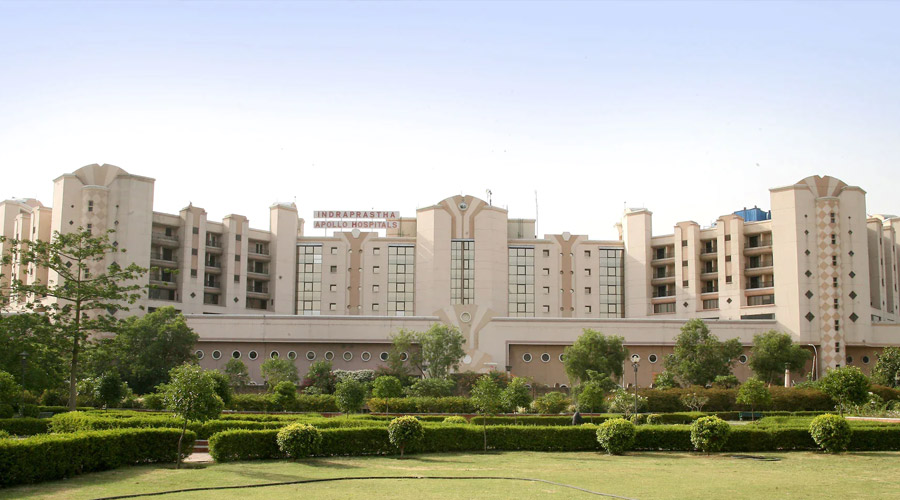
Indraprastha Apollo Hospital, New Delhi
Established in 1996, Indraprastha Apollo Hospital is NABL and JCI accredited. Apollo Group offers 10,000 beds across 64 hospitals, more than 2,200 pharmacies, over 100 primary care & diagnostic clinics and 115 telemedicine units across 9 countries. Indraprastha Apollo Hospital has 52 specialties under one roof.
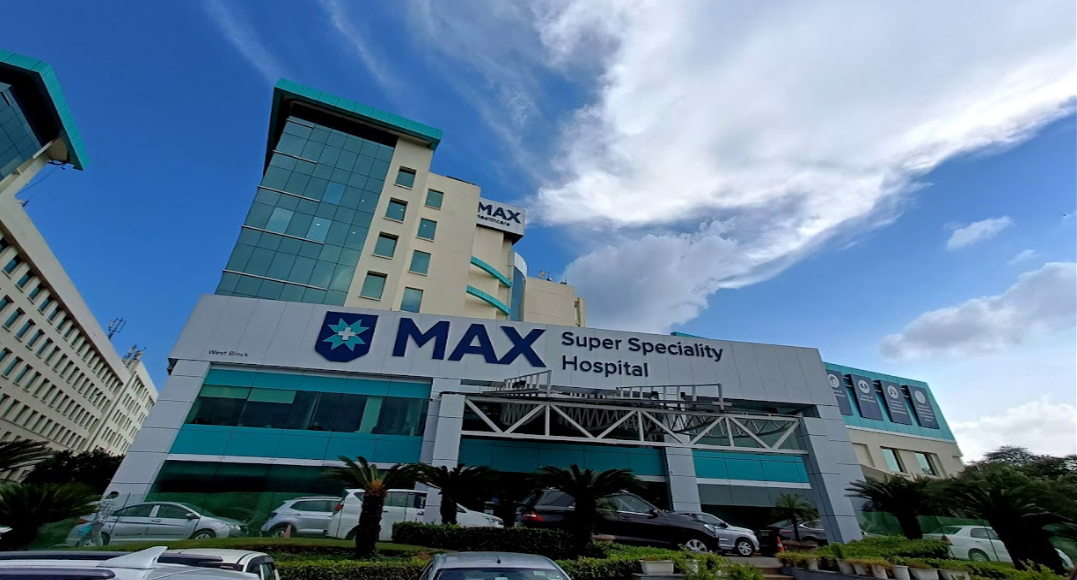
Max Super Speciality Hospital, Saket
Max Super Speciality Hospital Patparganj, Delhi has been one of the top medical care facilities for people living in India as well as internationally. It is home to one of the best speciality treatment centres with the best doctors renowned in India and internationally.
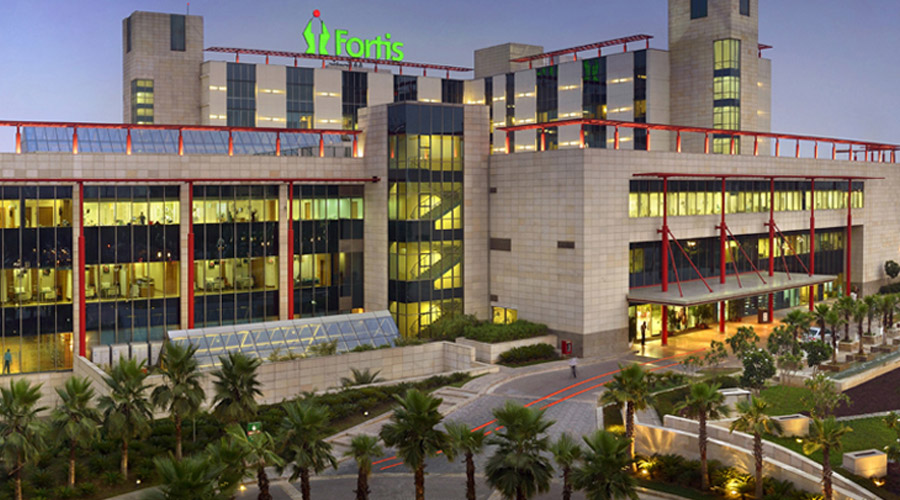
Fortis Memorial Research Institute – Gurugram, NCR Delhi
Fortis Memorial Research Institute (FMRI), a multi-super-specialty, quaternary care hospital, is considered as one of the best hospitals in Gurgaon. Fortis Hospital, Gurgaon, has undergone a thorough on-site review of the quality and safety of care being provided and is committed to continuously meeting rigorous international standards.
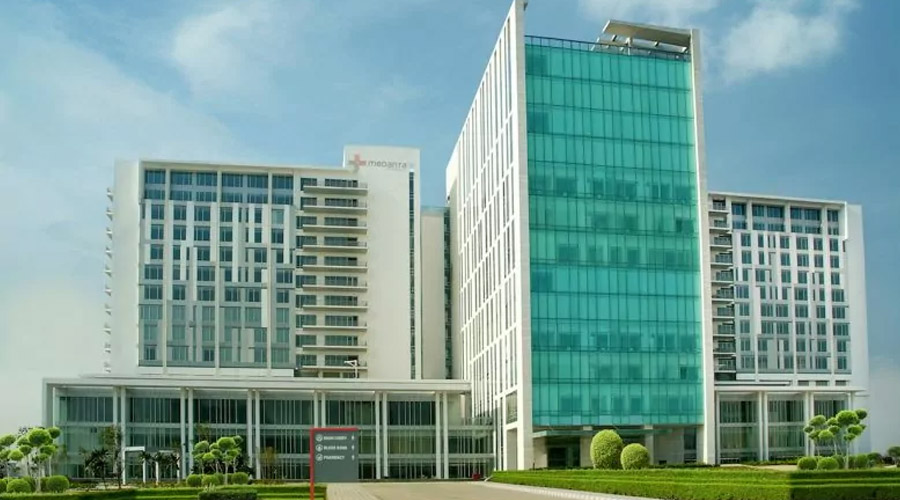
Medanta – Multi-Super Specialty Hospital
Medanta – The Medicity is one of India’s largest multi-super specialty institutes located in Gurgaon, a bustling town in the National Capital Region. Founded by eminent cardiac surgeon, Dr. Naresh Trehan, the institution has been envisioned with the aim of bringing to India the highest standards of medical care along with clinical research, education and training.
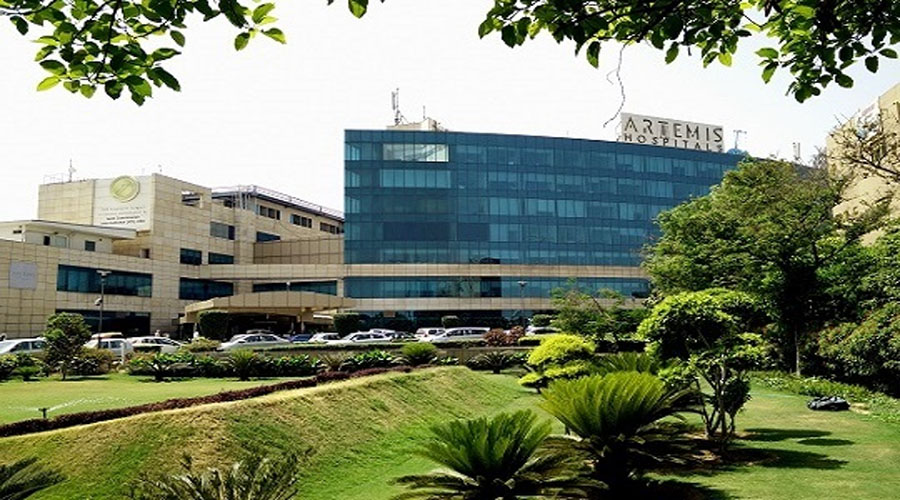
Artemis Hospital – Gurugram, NCR Delhi
Artemis Health Institute, established in 2007, is a healthcare venture launched by the promoters of the Apollo Tyres Group. Artemis is the first Hospital in Gurgaon to get accredited by Joint Commission International (JCI) (in 2013). It is the first Hospital in Haryana to get NABH accreditation within 3 years of start up.
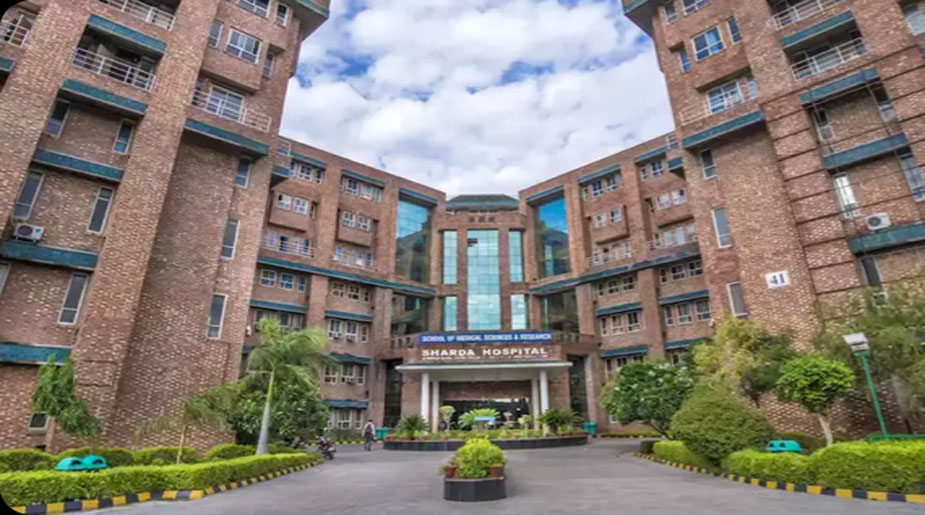
Sharda Hospital – Greater Noida
Sharda Hospital, a state-of-the-art multi super speciality hospital, offers medical care at par the global excellence. Equipped with all modern facilities and sophisticated equipment, Sharda Hospital provides global comprehensive healthcare as preferred destination of healthcare.
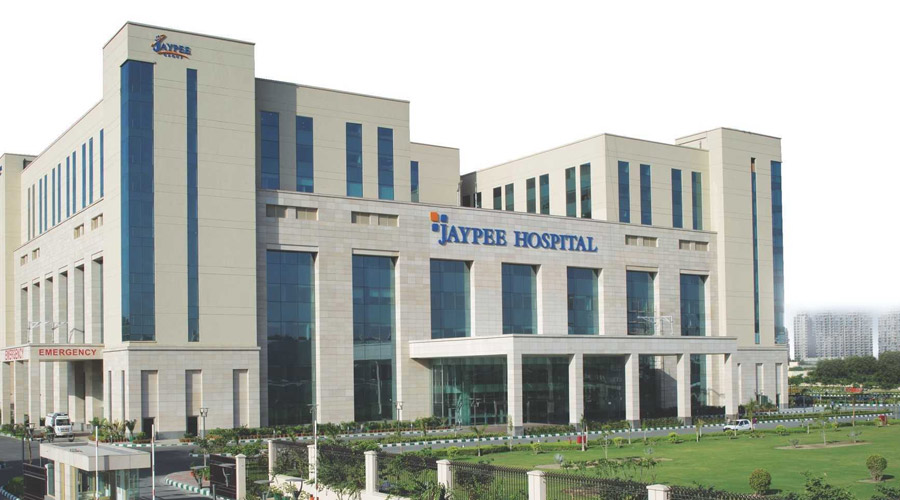
Jaypee Multi-Super Speciality Hospital – Noida
The Jaypee Hospital was conceptualized by our revered Founder Chairman, Shri Jai Prakash Gaur with the vision of promoting world-class healthcare amongst the masses by providing quality and affordable medical care with commitment.
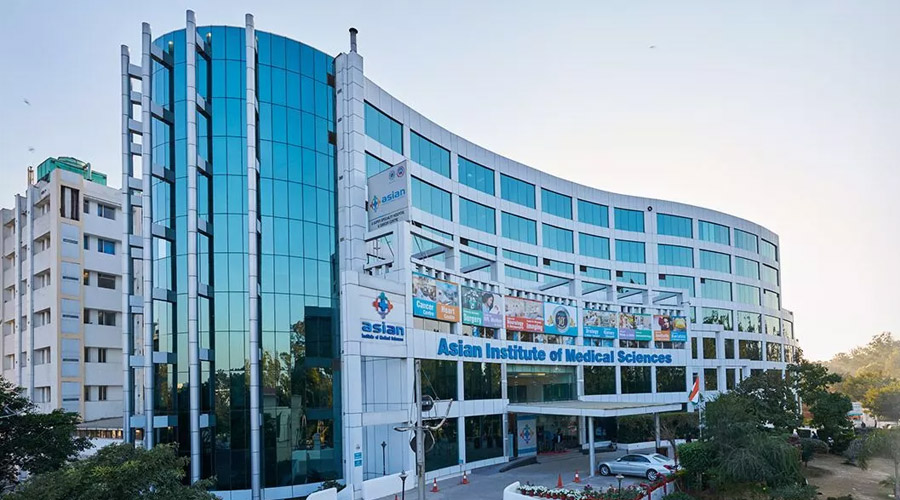
Asian Institute of Medical Sciences
425-bedded super speciality tertiary care hospital is truly futuristic in its services & technology and brings together some of the most talented medical professionals in India. The hospital has been accredited with NABH and NABL accreditations and is equipped with state-of-the-art technology.
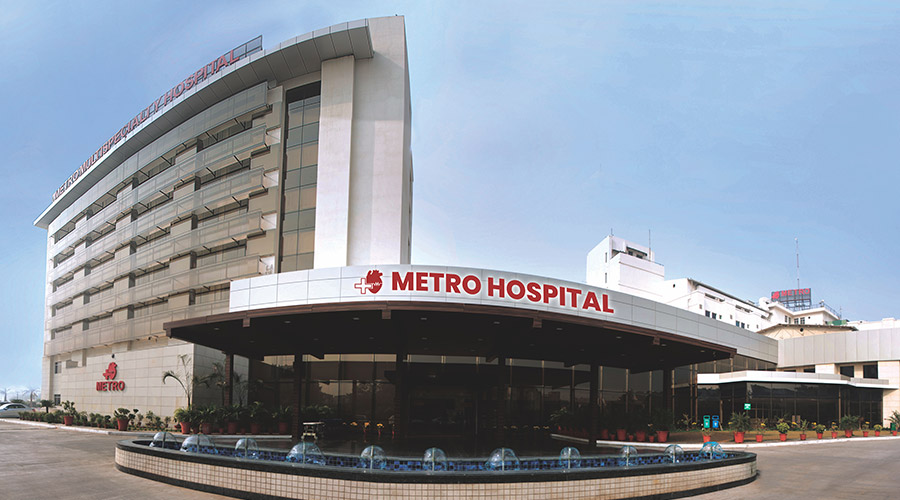
Metro Heart Institute with Multispeciality
Metro Group of Hospitals is a group of 11 hospitals and 1 college (Metro College of Health Sciences and Research), having more than 2500 beds flourishing hospitals and leading one of the biggest group of hospitals in India.
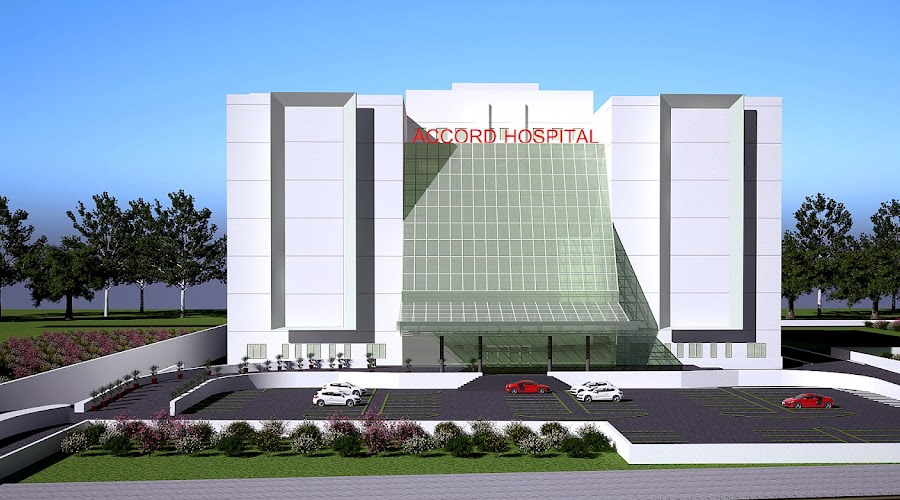
Accord Superspeciality Hospital – Faridabad
The story of Accord began with the thought of leveraging the new age technology with the healthcare infrastructure to serve the patients rightly, effectively, and timely. Accord Superspeciality Hospital is the best hospital in Faridabad, India.
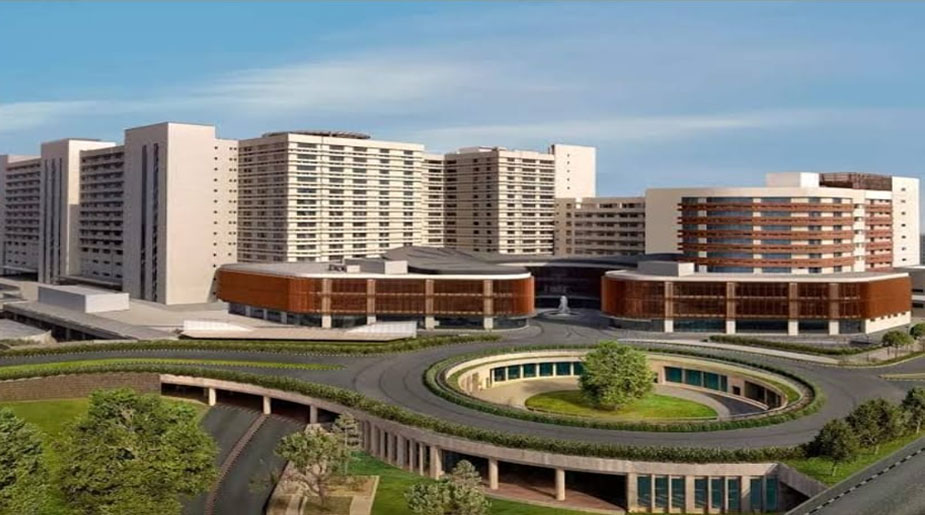
Amrita Hospital, Faridabad
Amrita Hospital, Faridabad is an institution where technology and expertise blend seamlessly with empathy and attention to detail. The hospital in Faridabad Sector – 88 has been designed with its environmental impact at the forefront. The architects began by using construction materials that comply with national and international green building standards.


